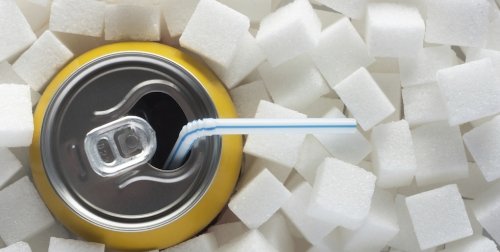The government’s plans mean manufacturers will be taxed in relation to the quantity of sugar-sweetened drinks they produce or import. The sugar tax swill reportedly raise £520m, which will be used to help support school sport and fitness programmes.
Brands such as Coca-Cola, Pepsi and Red Bull will be affected, but also beverages with lower sugar content such as tonic water and alcohol-free shandies will face the new tax. The new levy will not be paid on milk-based drinks and fruit juices.

The industry reacts
Jon Woods, general manager of Coca-Cola Great Britain, said the proposed regulation “flies in the face” of evidence suggesting that tax does “very little” to reduce obesity levels.
He said: “We understand obesity is an issue that needs to be addressed and will continue our work to reduce the sugar and calories consumed from our drinks. We have already done a great deal and our actions are doing more to reduce sugar and calorie intake than a tax will.
“It’s disappointing that the government has chosen to single out soft drinks in its attempt to tackle the problem. If the aim is to reduce obesity, this levy flies in the face of evidence from around the world which shows taxes do very little, if anything, to reduce sugar and calorie intake or obesity levels but do add to people’s cost of living.”
Britvic, meanwhile, was “extremely” disappointed with the government’s decision and believes that only taking a “holistic” view can help tackle obesity in the UK.
“We are extremely disappointed that the government is proposing to introduce a soft drinks tax from 2018. Singling out soft drinks alone will not solve the obesity problem, given the small proportion of calories they contribute in the average diet,” a spokesperson told Marketing Week.
“As the Chancellor recognised during his speech, Britvic has already voluntarily made significant progress in calorie and sugar reduction, taking bold steps to remove over 18 billion calories since 2012. Britvic is also committed to continuing to materially reduce the average number of calories consumed per serve.
“We will review the details of today’s announcement and will fully engage in the Government consultation process. We remain of the view that only a holistic, wide-ranging strategy will tackle obesity.”
The British Soft Drinks Association (BSDA) called the proposed regulation “simply absurd” and attacked other food brands for not doing enough to reduce sugar in their products.
“We are the only category with an ambitious plan for the years ahead – in 2015 we agreed a calorie reduction goal of 20% by 2020. By contrast, sugar and calorie intake from all other major take home food categories is increasing, which makes the targeting of soft drinks simply absurd,” says Gavin Partington, director general at the BSDA.
Ian Wright, director general of the Food and Drink Federation, adds: “For nearly a year we have waited for a holistic strategy to tackle obesity. What we’ve got today instead is a piece of political theatre.”
But not everyone was disappointed – fruit juices and milk-based drinks will be excluded from the tax. Douglas Lamont, CEO at Innocent drinks says that by excluding fruit juice from the proposed soft drink tax, it is “delighted” the government is recognising the “valuable role juices and smoothies play in helping people reach their 5-a-day target”.
Action groups also applauded the news, albeit with slight skepticism. Professor Graham MacGregor, chair of Action on Sugar added that it was thrilled to see the government introduce a sugar levy but that it needs to be implemented immediately.
He said: “For this to be effective it’s imperative that the levy is at least 20% on all sugar-sweetened soft drinks and confectionary and escalate thereafter if companies do not comply to reformulation targets – and this must be implemented immediately.”
Brands must step up their game
Soft drink brands have been steadily reducing the amount of sugar in their drinks or focusing on new innovations. For example, Coca-Cola is heavily pushing its sugar-free variants while Britvic plans to cut out calories from its products.
As a result, Nina Aggarwal, managing director at brand agency Fusion Learning believes the companies affected are “so on the ball” with their new product development pipeline and research and development work that they won’t panic too much.
However, brands face a big task to continue to be relevant in consumers’ lives. As a result, they will have to deliver on their promises to cut sugar to prevent their consumers from choosing a healthier alternative.
“They will have to change the fundamentals of their products like the ingredients and recipes — not just the advertising, packaging and experience. But brands should be vocal about the changes they do implement, as this knowledge will reassure the consumer that she is making a healthy decision in purchasing their products,” says Emma Rose Hurst, senior strategist at creative consultancy Brand Union.
“The brands that decide not to change their products’ sugar levels will need to use their brand equity to offset the cost of the tax. The experience of the brand— the way it makes you feel, not just the taste itself—must be compelling enough to convince consumers that their products are worth the added cost and potential health impact.”
Source: marketingweek.com http://bit.ly/1Uim7PP
